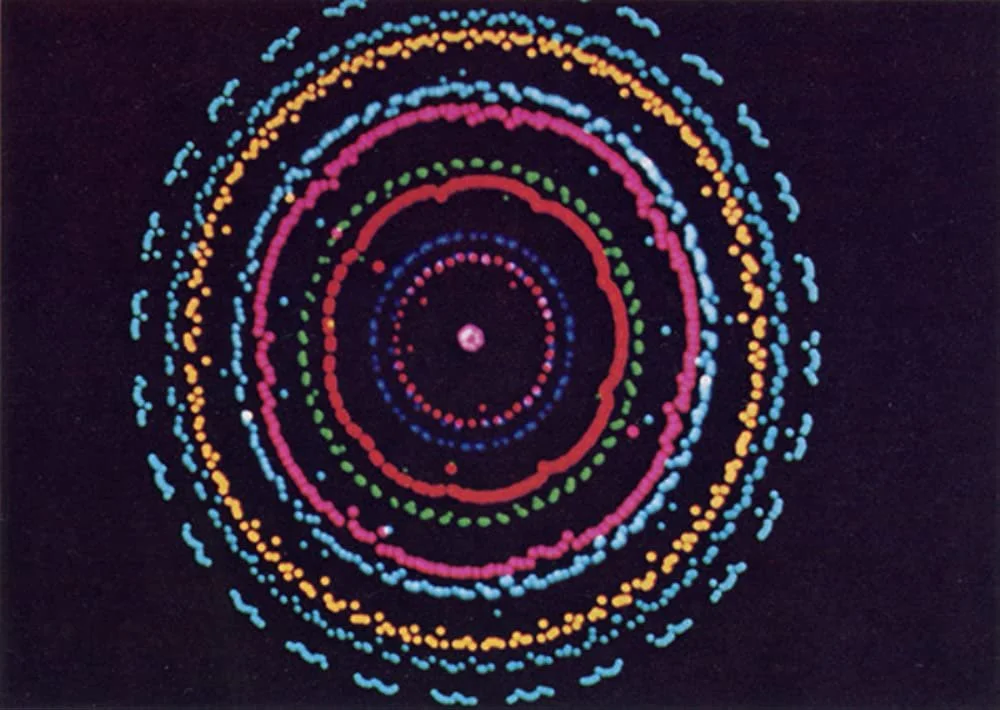Sunday with Books: Ancient Masquerades
Have you ever wondered where we humans came from? Of course you have. What was life like when we had to go everywhere on foot, when we hunted and foraged and built everything by hand? Over 150,000 years of human history preceded the invention of agriculture. And when agriculture was first developed, around 12,000 years ago, how different was the world?
In The Dawn of Everything: A New History of Humanity, which came out in 2020, archaeologist David Wengrow and anthropologist David Graeber bring their expertise to these questions, helping to overturn some of our assumptions about the deep history of humanity. These assumptions, which the authors spend a great deal of time analyzing, generally fall into two camps: the impression that indigenous life was a perfectly innocent utopia, and the impression that it was ignorant and violent. These two positions, respectively, are associated with philosophers Jean-Jacques Rousseau and Thomas Hobbes, but they have been developed by others and are still alive today in the work of bestselling writers. Wengrow and Graeber take aim at some of these writers, including Steven Pinker and Jared Diamond.
Visitors at the site of Göbekli Tepe, a city in Turkey that was inhabited between 9500 and 8000 BC
Wengrow and Graeber are not fans of the notion of “progress.” Today, many of us see human history as a succession of progressive stages leading to the present moment. For example, here’s a common story: crude hunter-gathers discover farming, and farming leads to the growth of cities, states, literacy, science and on and on into industrial revolution and modern statecraft. This story, developed by intellectuals over the past 250 years, has trickled into the popular consciousness through books, movies, and video games, and now we have a situation in which nearly everyone imagines human history like a cartoon, either a very tragic one in which all of our inventions lead us to the misery of modernity, or a very inspiring one in which we eliminate plagues and discover human rights.
The authors of The Dawn of Everything are sick and tired of everyone projecting present-day fantasies and ideologies onto human history. What they want to prove is that human societies throughout time and space have been complex and self-conscious in their political and social arrangements. In order to show this, they bring us on a whirlwind tour of indigenous societies and prehistorical societies, focusing on instances that disprove our assumptions, or, at the very least, open up a space for curiosity.
For example, early in the book the authors give us examples of tribes that altered their political and social structures on a seasonal basis. The Nambikwara people of Brazil lived in hilltop villages in groups of hundreds and practiced horticulture. But this was only during the rainy season. For the rest of the year, they would break into small foraging bands led by an authoritarian leader, who had to earn or prove his reputation so that he could enjoy a subtler form of power and respect back at the village during the wet seasons. A similar situation was observed by anthropologists studying certain Inuit peoples in the Arctic. In the summer, they would split into small bands “to pursue freshwater fish, caribou and reindeer, all under the authority of a single male elder.” During this period, the leader would have absolute coercive power over his band, and property was “possessively marked.” In the winter however, Inuit bands would reconvene and live in big houses made of wood, whale bones, and rock and live without rank or property. “Wealth was shared,” the authors write, “and husbands and wives exchanged partners under the aegis of Sedna, the Goddess of the Sea.”
The authors: David Wengrow (left) and David Graeber.
The point of these examples isn’t to make you fantasize about becoming a hunter-gatherer. Instead, the point is to show that egalitarian and ranked social structures can’t just be easily paired with different “stages” of civilizational development or different population sizes. Instead, these structures are options that humans have creatively employed in order to overcome material and social challenges. Maybe we shouldn’t think so rigidly about power structures, they argue.
Another myth that Wengrow and Graeber overturn is the notion that once we became farmers we never looked back. They show recent evidence that proves that the earliest agriculturalists (in and around Syria) took 3,000 years to domesticate crops when they could have done it in under 100. Why? They weren’t farming optimally, as in, devoting all of their energy to farming. In many cases, people moved in and out of farming, despite the surplus that it provides. The authors argue that these early farmers had better things to do than optimize surplus, and that they strategically chose to farm sub-optimally:
“Serious farming meant serious soil maintenance and weed clearance. It meant threshing and winnowing after harvest. All these activities would have got in the way of hunting, wild food collection, craft production, marriages and any number of other things, not to mention storytelling, gambling, travelling and organizing masquerades.”
Why is this important? Well, it goes against the typical narrative that farming was one step in a long chain of advances that led us to a technologically-advanced, superior age. The authors make sure to remind us that they aren’t buying into Rousseau’s vision that hunter-foragers were simple-minded utopians, since they (the authors) see prehistorical peoples as having complex and self-conscious social, cultural, and political arrangements; but, allowing that, Wengrow and Graeber certainly do see prehistorical and indigenous societies as interesting, maybe even dreamy, if only to stimulate the imagination of the modern reader to try to rethink our current system. After all, David Graeber is most famous for critiques of macroeconomic debt (see his book Debt: The First 5000 Years) and modern-day jobs (Bullshit Jobs: A Theory), not to mention his leadership in the Occupy Wall Street movement.
There’s a line in the The Dawn of Everything that sums up the revolutionary cause of the authors as they gaze at the distant past:
“Why, after millennia of constructing and disassembling forms of hierarchy, did Homo sapiens – supposedly the wisest of apes – allow permanent and intractable systems of inequality to take root?”
It’s a good question, and they don’t exactly answer it in the book. Instead they prove that things in human history have been otherwise, and that we’re often too blinded by the present to see clearly how many alternatives there really are.—Will Powers






